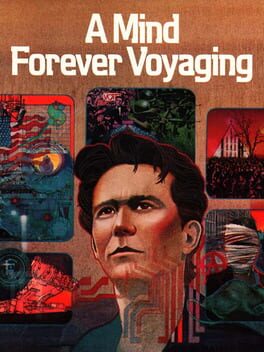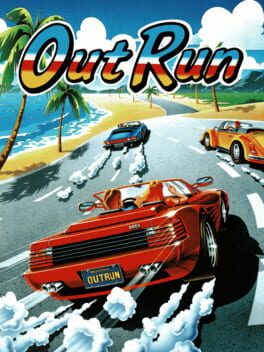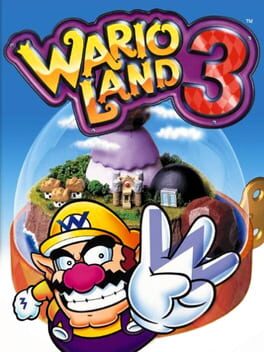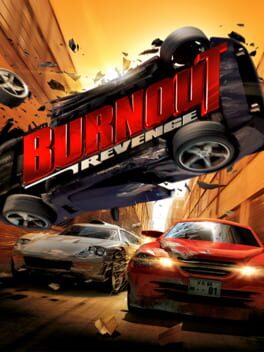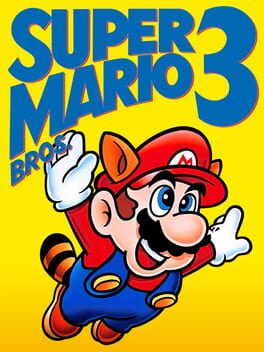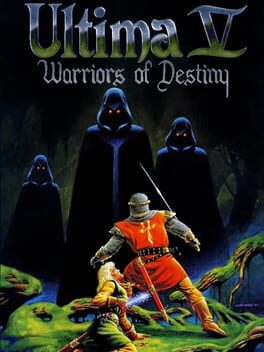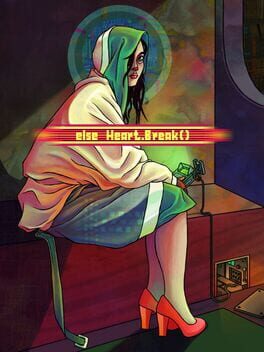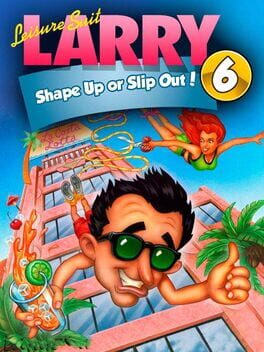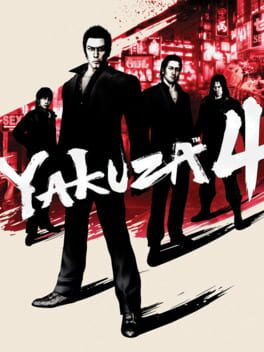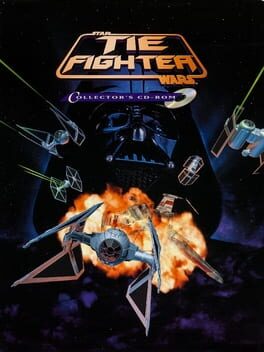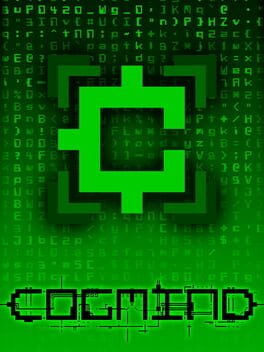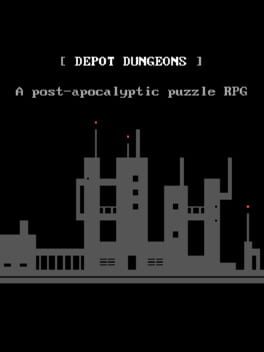PerrySimm
It takes some balls to make a commercial text-adventure in 1985 that has not only an explicit political stance, but also practically no puzzles. You are an AI, tasked with documenting the simulated development of a city over time according to the policies of a Reagan-like senator, all while struggling with your own non-humanity. A Mind Forever Voyaging is closer to an interactive science-fiction story than a traditional adventure game -- which is probably why it holds up so exceptionally well.
1986
A terrific and tremendously replayable racer that revolves around mastering the balance between four simple mechanics (accelerating, steering, braking and shifting). What sets it apart from similiar games is its sheer joie de vivre. At its core, it's really a game about cruising through Europe in a red Ferrari, blue skies above, girlfriend on the passenger seat, awesome music playing on the radio. It may be the quintessential SEGA game.
2000
By the year 2000, Nintendos cheeky R&D1 team could play the 8-bit platforming piano like Beethoven. Exploring the artfully designed and interconnected levels of Wario Land 3 is just so satisfying, like unfolding a giant piece of origami. Forget Braid -- this is the greatest puzzle-platformer ever made.
2005
One of my favorite racing games ever, and easily the best Burnout game. The sense of speed and exhilaration is just unmatched, and the soundtrack is pure cringy early 2000s bliss. Then there's the mind-boggingly ingenious "traffic checking" feature, which single-handedly ruined every other racing game for me, as well as driving in real life. People who say they prefer Burnout 3: Takedown are hipsters. (Don't get me started on Paradise and its ill-fitting open world.)
2012
1987
Pirates! is an aimless, repetitive, mini-game-ridden mess that should not work. And yet, it is one of the most loved and enduring computer games of all-time, with dozens of ports and remakes released over the span of nearly two decades. Why? Because it is all so expertly held together by a way-deeper-than-it-has-to-be meta-game that manages to give meaning to the way its gameplay elements come together. The back-and-forth between the wide variety of the player's possible actions and playstyles on one hand and the crunchy reactiveness of its living open world and its well-researched historical background on the other allows the imagination to go wild, resulting in a very personal emergent swashbuckling story full of action, drama, adventure and romance. (Or you could just, you know, trade sugar and stuff, if that's your thing.)
1988
Here's a tip: Don't play Super Mario Bros. 3 on a laptop, on a handheld or in its remade "All-Star" iteration. For the ideal experience, grab yourself an awkward, unwieldy controller that's slightly too big for your hands (an Xbox one will do), fire up an emulator with a good scanline filter, and play it on a huge screen in all its chunky 8-bit glory (provided of course you don't happen to have an NES and a CRT TV nearby).
Why? Because then you'll start get a feel for what's so incredible about it: that it's a breathtakingly beautiful, iconic pop art masterpiece in form of a children's toy. Try to imagine the wealth of outlandish schoolyard rumours about hidden secrets in the game, half of which are probably true, and your parents disapprovingly shaking their heads at the colorful flashing images and beep-boop soundscape, breathing down your neck like oversized smoke-puffing turtle dragons, telling you that you have ten more minutes before you really need to get ready for church or whatever, all while you make Mario run, slide and jump for his life, frantically trying to make it to the final stage without a save feature.
Mario 3 is the Sgt. Pepper of my generation, and I say this without any childhood nostalgia. After all, I never experienced the scenario described above (having been a Sega kid who was busy playing Sonic the Hedgehog, the equivalent of listening to the Stones instead).
Why? Because then you'll start get a feel for what's so incredible about it: that it's a breathtakingly beautiful, iconic pop art masterpiece in form of a children's toy. Try to imagine the wealth of outlandish schoolyard rumours about hidden secrets in the game, half of which are probably true, and your parents disapprovingly shaking their heads at the colorful flashing images and beep-boop soundscape, breathing down your neck like oversized smoke-puffing turtle dragons, telling you that you have ten more minutes before you really need to get ready for church or whatever, all while you make Mario run, slide and jump for his life, frantically trying to make it to the final stage without a save feature.
Mario 3 is the Sgt. Pepper of my generation, and I say this without any childhood nostalgia. After all, I never experienced the scenario described above (having been a Sega kid who was busy playing Sonic the Hedgehog, the equivalent of listening to the Stones instead).
I would say that Ultima V was "ahead of its time", but the sad reality is that there are still hardly any games that can measure up to its qualities: a rich, living game world, where every single NPC has its own daily routine and can be engaged in naturally flowing conversations; the ability to interact with almost every object in the environment; completely open, non-linear progression instead of a "main quest line"; a deep, thought-provoking story that is still relevant today; and I'm not even talking about crazy things like the simulation of wind, moon cycles and planetal orbits. How they managed to do all this on an Apple II in 1988 is a goddamn miracle to me. Over 30 years later, Ultima V is still the most ambitious and perhaps the greatest CRPG of all time.
2005
The refined and cheekily self-referential sequel to Katamari Damacy was the last truly great game in a series that like no other defined the era of experimental mid-budget PS2 games, until its original creator left, and it got turned into a hotpot of cynical cash-grabs that never again recaptured the magic and avant-garde qualities of its first two entries.
Basically, We ❤ Katamari plays like a twisted version of a Peter Molyneux god game through the eyes of an absurdist artist, who looks at the world in a Brechtian "seeing something familiar from a confused outsider's perspective" kind of way. Above all, it's just such a pure expression of a video game, with that distinctly Japanese quality of being childlike and goofy and light-hearted on the surface, while at the same time having a sad and eerily sinister undertone. Experiencing it is hard to describe, but maybe best summed up by its soundscape: Imagine listening to a jaunty upbeat J-Pop song while people are screaming in terror in the background. In the end, you can't help but laugh.
Basically, We ❤ Katamari plays like a twisted version of a Peter Molyneux god game through the eyes of an absurdist artist, who looks at the world in a Brechtian "seeing something familiar from a confused outsider's perspective" kind of way. Above all, it's just such a pure expression of a video game, with that distinctly Japanese quality of being childlike and goofy and light-hearted on the surface, while at the same time having a sad and eerily sinister undertone. Experiencing it is hard to describe, but maybe best summed up by its soundscape: Imagine listening to a jaunty upbeat J-Pop song while people are screaming in terror in the background. In the end, you can't help but laugh.
2015
else Heart.Break() ticks so many of my boxes that it comes dangerously close to being my theoretical dream game. There's a simulated city with NPC schedules like in Ultima or Shenmue, there's creative freeform hacking with actual code, there's mucking around in places you're not supposed to be in, there are problems instead of puzzles, there are spacey-surreal vibes, there's hanging out with friends in clubs and cafés. All that from a dev team that's just too cool to sell themselves as an "indie studio" and instead answers the question of who actually made the game by just listing a bunch of awesome-sounding swedish names.
No, else Heart.Break() is not perfect. It's short, it's easy to break, and it's a little anticlimactic. But it's a game where I can walk back to my hotel at night while drunk, and then decide I'd rather hack myself a super coffee and spend the whole night sitting in a public park, listening to a lonely stranger play saxophone. I know I'm pretty alone in this, but that's exactly the kind of shit I play video games for.
No, else Heart.Break() is not perfect. It's short, it's easy to break, and it's a little anticlimactic. But it's a game where I can walk back to my hotel at night while drunk, and then decide I'd rather hack myself a super coffee and spend the whole night sitting in a public park, listening to a lonely stranger play saxophone. I know I'm pretty alone in this, but that's exactly the kind of shit I play video games for.
Leisure Suit Larry 6 is a guilty pleasure, a celebration of tastelessness. The ugly art (even "better" in the high-res SVGA version!), the constant barrage of dirty dad jokes and toilet humor, the cruelty and cynicism on display, the head-scratchingly poor decisions in parts of the puzzle design -- it all amounts to a game that I cringe at but also enjoy, mainly because it ignores the crazy plots and messy continuity of the previous titles and goes back to the laid-back hangout nature of the original, where nothing really matters and it's just fun to click on things.
2010
Ranking the Yakuza games has always been difficult for me, because they're just all so damn great. Most people will say that Zero is the best one, and I agree. But 4 has a special place in my heart -- it's the one I come back to again and again, for various reasons. It certainly helps that it's starting out so chill and noir, with Akiyama, my favorite character of the series, basically just walking the nightly streets of Kamurocho in the rain, taking care of business and stirring shit up. Sure, the story has some of the series' most tone-deaf and/or straight-out bizarre cringe moments, but for me that's part of the charm.
I love how the game expands and focuses on one city district specifically, all the different kinds of people it inhabits, all the secrets beneath (and above) its surface, and how no single person could discover them all. I also love how it does a thing that I wish more open-world (and Yakuza) games would do: keeping the main story short and briskly paced, while filling the side content with subplots that explore the characters' backgrounds and feel like a meaningful part of the narrative.
I love how the game expands and focuses on one city district specifically, all the different kinds of people it inhabits, all the secrets beneath (and above) its surface, and how no single person could discover them all. I also love how it does a thing that I wish more open-world (and Yakuza) games would do: keeping the main story short and briskly paced, while filling the side content with subplots that explore the characters' backgrounds and feel like a meaningful part of the narrative.
TIE Fighter is still the best and most interesting Star Wars game. One year prior, X-Wing had laid the groundwork by taking the approach from World War II flight sims like Secret Weapons of The Luftwaffe and applying it to Star Wars, so instead of a straightforward, character-driven action game like you would get today, the result was a kind of nerdy simulationist take on a universe that's usually a more "fun and forget"-type set-dressing affair in service of archetypical adventure stories.
TIE Fighter improved on almost every aspect of its predecessor, not only with its vastly superior mission design, which is still one of the greatest strengths of the game, but also when it comes to its story and scenario. Playing as a pilot for the Empire is a clever switch of perspectives that's handled refreshingly subtle. It's the "banality of evil/just another day at the office"-type mundanity that makes the worldbuilding work so well, and the moments when you are introduced to the mysterious Secret Order of the Emperor, or meet up with celebrities like Vader and Thrawn, all the more memorable.
TIE Fighter improved on almost every aspect of its predecessor, not only with its vastly superior mission design, which is still one of the greatest strengths of the game, but also when it comes to its story and scenario. Playing as a pilot for the Empire is a clever switch of perspectives that's handled refreshingly subtle. It's the "banality of evil/just another day at the office"-type mundanity that makes the worldbuilding work so well, and the moments when you are introduced to the mysterious Secret Order of the Emperor, or meet up with celebrities like Vader and Thrawn, all the more memorable.
2017
Cogmind is the best game I have ever played, and I've been playing games for over thirty years. It's a traditional roguelike with a sleek, modern interface that plays like an immersive sim on steroids, and it's a masterclass in game design. It boggles my mind how a game can have that many interesting interlocking systems while being so tightly, thoughtfully and elegantly constructed at the same time.
Don't let the words "Early Access" or "Beta" fool you. Cogmind is huge, deep, polished, practically bugfree, and balanced to near perfection. It should be called "Version 8 Deluxe" or something, but the game's sole creator is a mad but very organized genius who can't bring himself to make a version called 1.0, maybe because he has very high standards and an insane work ethic, or maybe because he just loves his game and its community to death and can't let go.
Anyway, bottom line, I think Cogmind is quite possibly the greatest computer game ever made, I love that we keep getting more of it, and I hope someday in my lifetime I get to play that open-ended space game the developer has teased doing next.
Don't let the words "Early Access" or "Beta" fool you. Cogmind is huge, deep, polished, practically bugfree, and balanced to near perfection. It should be called "Version 8 Deluxe" or something, but the game's sole creator is a mad but very organized genius who can't bring himself to make a version called 1.0, maybe because he has very high standards and an insane work ethic, or maybe because he just loves his game and its community to death and can't let go.
Anyway, bottom line, I think Cogmind is quite possibly the greatest computer game ever made, I love that we keep getting more of it, and I hope someday in my lifetime I get to play that open-ended space game the developer has teased doing next.
2015
The Dark Souls of puzzle ga-- slaps himself
Depot Dungeons is a work of genius and the definition of a "hidden gem". Made in 2014/15 in a DOS-based game creation system from the early 90s (though you can play it on many platforms and even with one click in your browser), this devilish, intricate puzzle game with RPG elements has ridiculous amounts of love, care and expert craftmanship put into it.
Now, normally, "puzzle game with RPG elements" evokes cheap Puzzle Quest clones -- toxicly addictive, disrespectful, exploitative mobile game free-to-play skinner box crap, where someone added flashing numbers and endless grinding to a match-3 game. Depot Dungeons does the exact opposite: It breaks down the RPG to its absolute core elements, with multi-layered puzzle challenges designed around it. Whether you have one hit point or two, which level you are, whether you have a weapon equipped, or decide to use an item, which class you are playing as at the moment -- all this can fundamentally change how you approach the chess-like predicaments Depot Dungeon throws at you. Often enough, you'll enter a room, say "That's literally impossible" out loud, then proceed to find multiple ways to solve it.
The game also has tons of optional content, special challenges and unlocks, an endless procedurally generated post-game dungeon, fun writing, and a nice little storyline. I for one love the glorious DOS text mode ASCII aesthetics as well (play it in 4:3 with the "CRT-wave" filter over it for extra authenticity), but if you don't, you can wait for the kickstarted sequel/remake Puzzle Depot that adopts a more common 16-bit pixel-art style.
Depot Dungeons is a work of genius and the definition of a "hidden gem". Made in 2014/15 in a DOS-based game creation system from the early 90s (though you can play it on many platforms and even with one click in your browser), this devilish, intricate puzzle game with RPG elements has ridiculous amounts of love, care and expert craftmanship put into it.
Now, normally, "puzzle game with RPG elements" evokes cheap Puzzle Quest clones -- toxicly addictive, disrespectful, exploitative mobile game free-to-play skinner box crap, where someone added flashing numbers and endless grinding to a match-3 game. Depot Dungeons does the exact opposite: It breaks down the RPG to its absolute core elements, with multi-layered puzzle challenges designed around it. Whether you have one hit point or two, which level you are, whether you have a weapon equipped, or decide to use an item, which class you are playing as at the moment -- all this can fundamentally change how you approach the chess-like predicaments Depot Dungeon throws at you. Often enough, you'll enter a room, say "That's literally impossible" out loud, then proceed to find multiple ways to solve it.
The game also has tons of optional content, special challenges and unlocks, an endless procedurally generated post-game dungeon, fun writing, and a nice little storyline. I for one love the glorious DOS text mode ASCII aesthetics as well (play it in 4:3 with the "CRT-wave" filter over it for extra authenticity), but if you don't, you can wait for the kickstarted sequel/remake Puzzle Depot that adopts a more common 16-bit pixel-art style.
